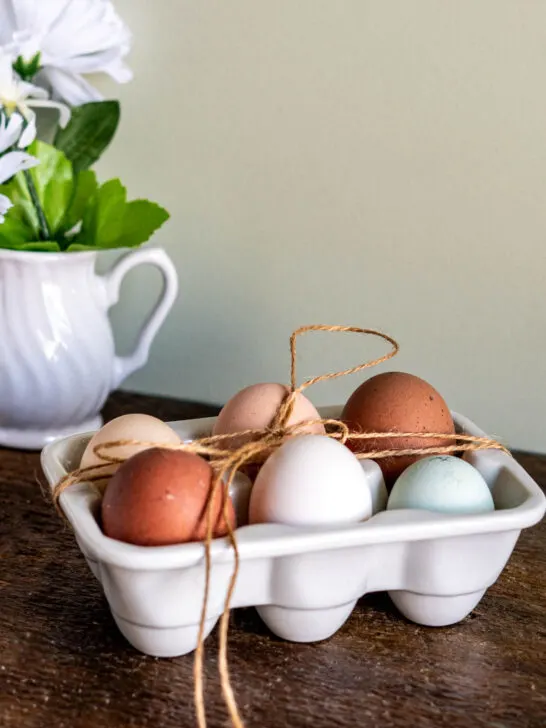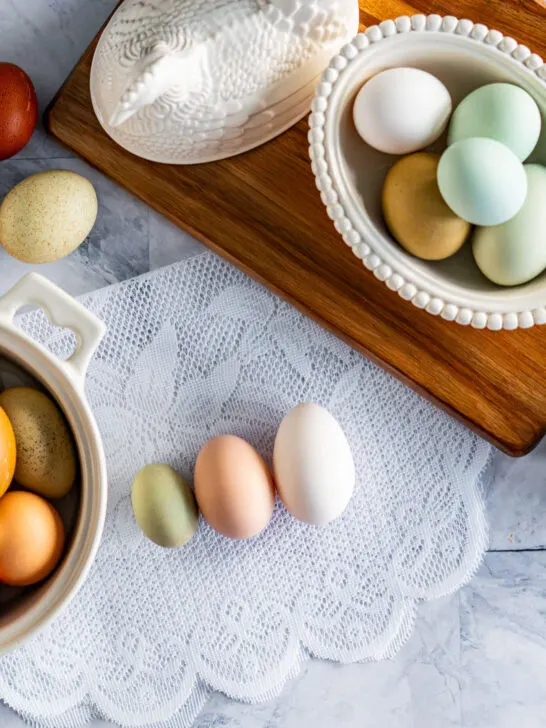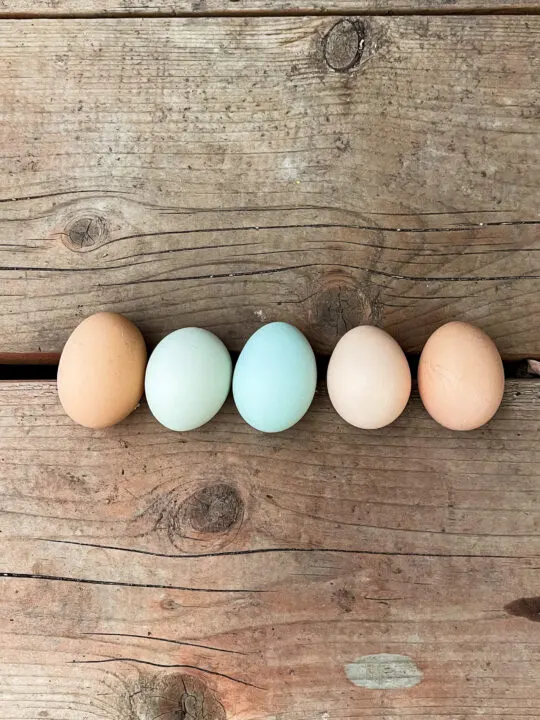If you've got extra cabbage after your harvest and wondering if your chickens can eat cabbage, you're not alone!
Chickens are natural omnivores and while commercially produced chicken feed supplies all the macronutrients they need to survive, I feel that chickens, like humans, benefit from a balanced diet.
If you've kept chickens for long, you'll know that chickens are real connoisseurs, enjoying the finer things in life like bugs, bits of food buried underneath the feeder, and straight-up puddle water.
Almost has you wondering why you're googling if your chickens can eat cabbage, doesn't it?!

As an Amazon Associate I earn from qualifying purchases.
Can Chickens Eat Cabbage?
Yes, your chickens can have cabbage! They can eat all types of cabbage, from red cabbage to green, to brussels sprouts, and napa cabbage.
BUT WAIT! There's a catch!
While your chickens love treats, it's important to ensure that you only feed your chickens these treats in moderation.
As a general rule, too many treats can affect your chickens negatively. Their commercial feed is specially formulated to provide all nutrients they need, so adding too much extra fresh food can throw their nutrition out of whack, especially fiber-filled food like cabbage that doesn't have much nutritional value in the way of protein and fats.
Like broccoli and cauliflower, cabbage contains goitrogens, and if offered in excess can cause avian goiter, so caution should be taken when feeding your flock these veggies. Goiter is an abnormal enlargement of the thyroid gland and symptoms can include weight loss, lethargy, depression, and worse.
If your chickens are on feed containing soybeans, it's especially important to monitor their consumption of cruciferous vegetables such as cauliflower, kale, cabbage, and turnips. These contain goitrogens that may impact your flock's health.
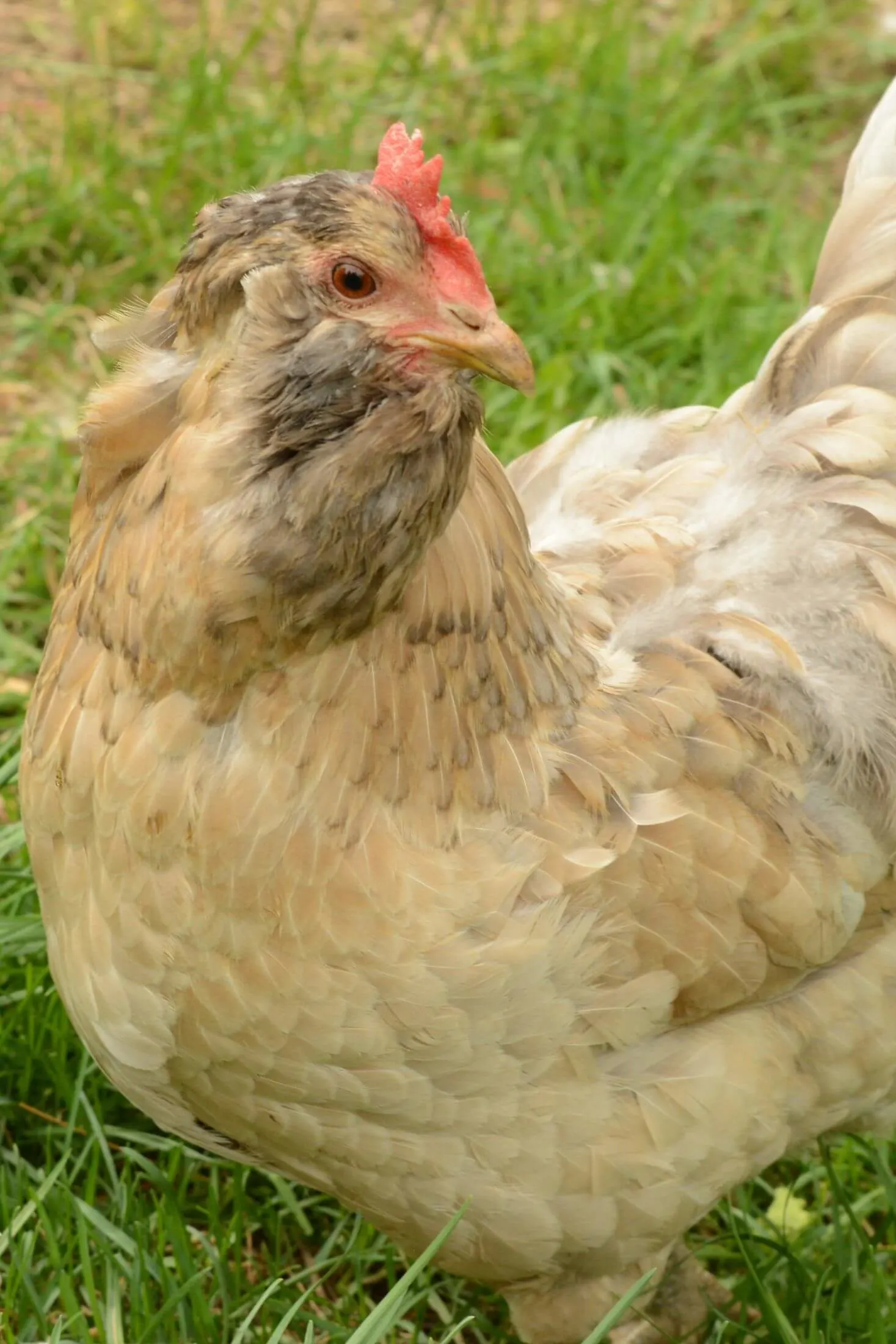
Cabbage Is Healthy For Chickens Too!
While it's common knowledge that chickens require a healthy diet to maintain good health and quality egg production, it's easy to overlook the benefits of veggies. These nutritious and tasty greens can play a crucial role in supporting your feathered friends' overall well-being and egg laying.
Cabbage is an excellent example, it's a great source of vitamins, minerals, and fiber, and contains lots of vitamin K to ensure your hens are laying viable, healthy eggs.
The outer leaves are edible, and although tough in texture to us, the chickens adore them. Don't forget that cores and stems are also a healthy treat. So when you're whipping up a batch of sour cabbage or sauerkraut make sure to save the stem, and core for your flock.
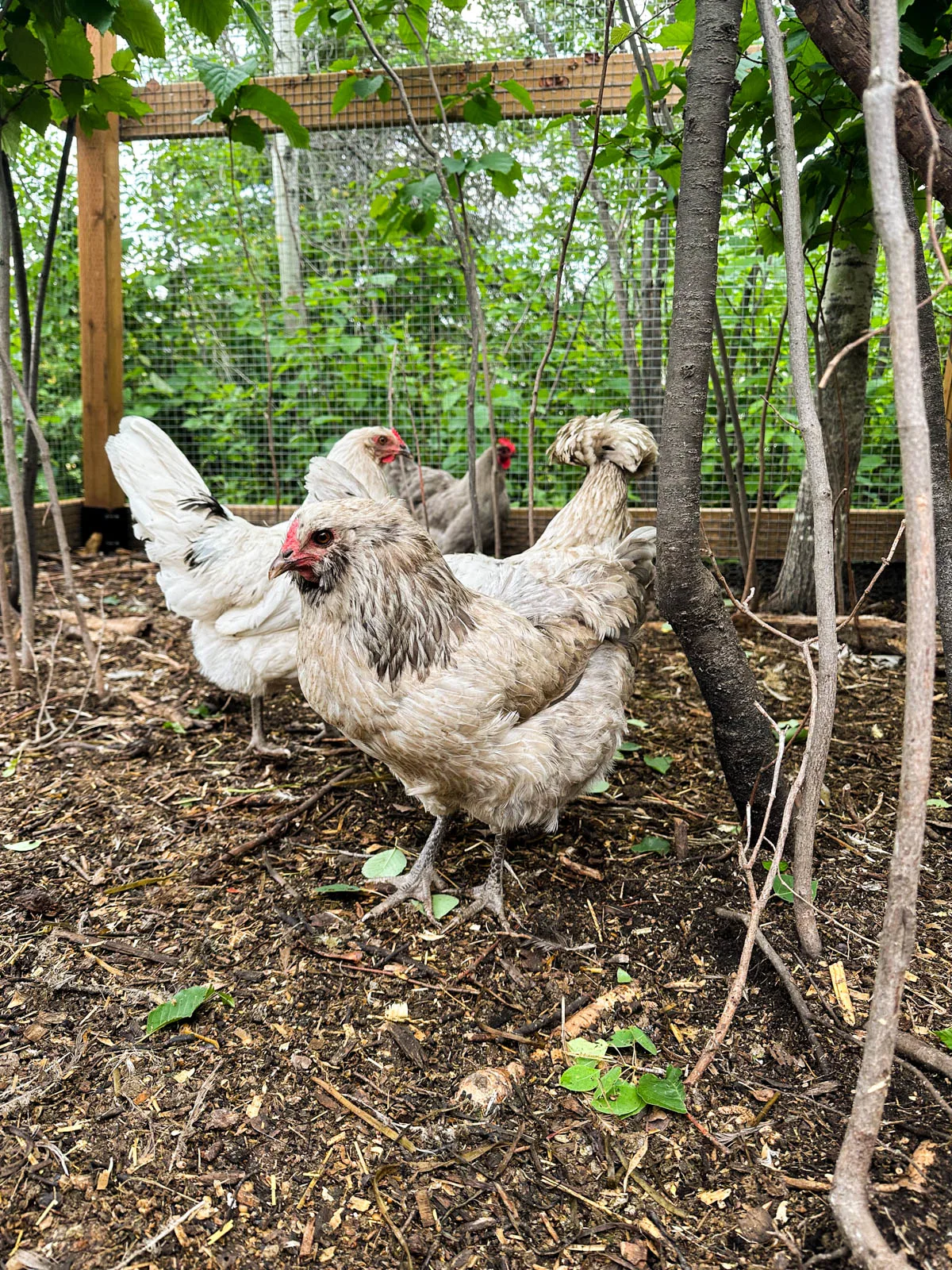
What Parts Of The Cabbage Plant Can Chickens Eat?
Well, they can eat all of it!
The roots, the stalks, the core, and the leaves are all edible and are a great treat for your chooks.
If you're like me, and you cut the cabbage plants at the soil level to allow the roots to break down in your no-till garden or you just don't want to give them the entire plant, it is fine to just feed them the leaves or cores, but they can also eat an entire head that may have gotten contaminated by those dreaded cabbage worms!
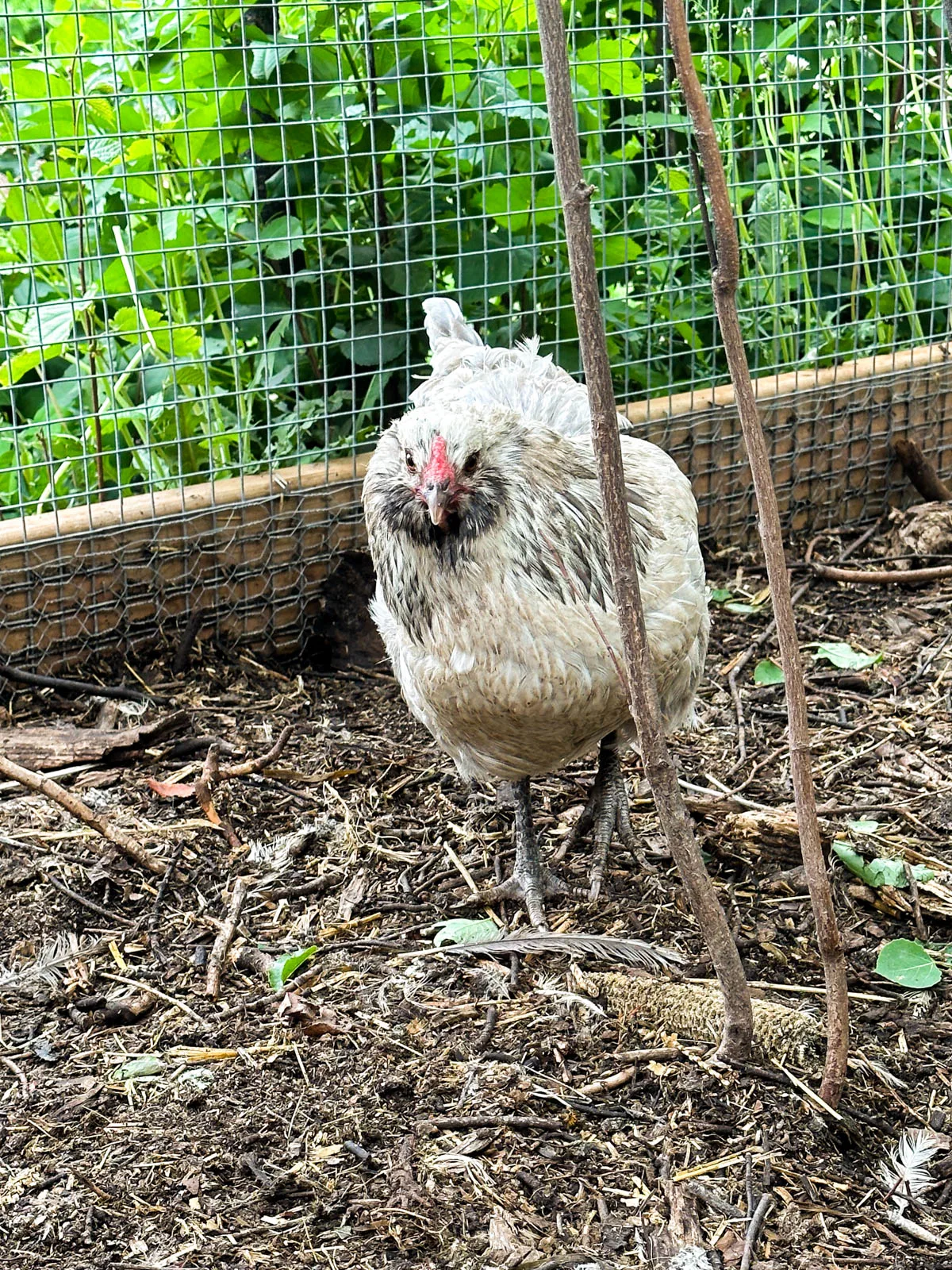
Feeding Chickens Cabbage
Before you serve cabbage to your flock, consider the following:
- Rinse and inspect the fresh cabbage: If you wouldn't eat it, don't feed it to your birds. If there are moldy, rotten spots cut those off and discard them or add them to the compost pile.
- Chickens aren't exactly known for being able to effectively eat an entire cabbage plant. Due to their lack of teeth, they may get frustrated if the leaves are too tough to peck and might just lose interest in the treat entirely.
- That said, many people hang whole cabbages in their runs to allow the chickens to peck away as a boredom buster - in this instance, the longevity of the hanging cabbage is a benefit!
- If you're not providing the cabbage as an activity, try to ensure that whatever part of the raw cabbage you are giving your laying hens is cut up into small pieces so they can pick it up easily and enjoy it. This is especially important when chicks eat cabbage with the adult flock. We often use a food processor to chop fresh produce into chicken bite-sized pieces.
- Cooked cabbage can be offered in larger pieces, as the cooking process breaks down the tough cell walls and allows the chickens to peck out appropriate-sized bites.
- Don't forget to provide grit. To ensure digestive system health and the overall well-being of your feathered friends, chickens need grit as a supplement to help break down their food in the gizzard when feeding them anything other than commercial feed.
More Chicken Content!
TL;DR
Yes. If you're going to feed chickens cabbage, do it in moderation and prepare it carefully to ensure their safety. Always verify that the cabbage is fresh and in reasonable-sized pieces for easy consumption. Don't forget to provide grit, especially when you give fresh fruits and veggies to your feathered flock.
Pin This Guide To Feeding Chickens Cabbage!


